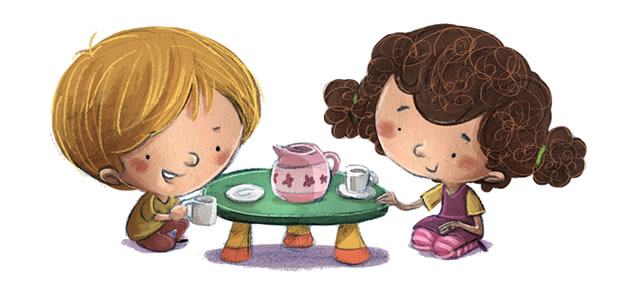That our two-year-old does not lend his things is completely normal. At your age, everything in your power is yours, it’s that simple. And he does not understand that suddenly one day a child comes and has to leave his toys. Don’t worry, this has a solution, it is only part of his development and it is up to us that he learns to be generous with others.
You have to arm yourself with patience and instruct them in the satisfaction of lending so that they lend you, the basis of the exchange. An enriching experience that will allow you, for example, to play with things that you do not have. At first it will cost you because you are not very aware that there are other children with other toys and you do not understand well what “lending” is, but as soon as you start to socialize and realize the benefits of sharing there will be no going back and you will see it as Naturally, he will not understand how there are children who do not act like this.
Where do we start? These 4 guidelines will help you start the process:
Explain the rules of coexistence
With great tranquility it is necessary to repeat him without rest, day after day, that we all have “things”, not only him. And that sometimes you have to share or lend to the people who are with you at that time, both at school and at home. If you have siblings, it is convenient that there are toys of common use and toys of each one.
Distinguish possessions
Clearly you have to know that there are things that belong to everyone: food or the park slide, for example. And also that there are things that are his exclusively like his clothes or his bed, which must always be respected and his permission to use them. This way he will understand what possession and respect for him is and therefore it will be much easier for him to put it into practice with others. A tip for when children come to visit you is to ask if there is something you do not want to share and keep it. This way we will avoid problems in advance.
Help him communicate
Sometimes he does not know how to express himself or he does not understand very well what is happening and we must help him. If he gets angry and does not want to leave a toy for his friend, we can tell him that they can have it in turns. This idea probably did not come to him. Or if it is your friend who does not want to lend to him, you have to make him see that your friend has the right to play a while longer and that perhaps later he will let him. It is about giving voice to the feelings, both yours and that of other children, always from the understanding and tenderness. Although it seems difficult, you will assimilate everything, your reactions will soften and you will understand those of others. Slowly. And always ask him how he feels and why, the first thing is that he feels heard.
Make sharing fun
Playing with other children makes him grow in every way. Team games are ideal to motivate them: building legos, racing, playing house by distributing the characters… the possibilities are endless. We must facilitate the encounter of our son with other children, whether they are neighbors, friends or family. Feeding your sociability is vital so that you know how to resolve conflicts and interact with all kinds of people, something really useful in life. To enhance the idea of teamwork at home, it is ideal to carry out “projects” with him: putting together a puzzle as a family, planting a garden of pots, placing the groceries in the pantry, etc …
And to finish, be their example of course. If the child sees that we are generous and that in addition to sharing we help those who need it, without being able to avoid it, he will become supportive and will give more value to friendship and human contact than to possessions.













































































































Recent Comments